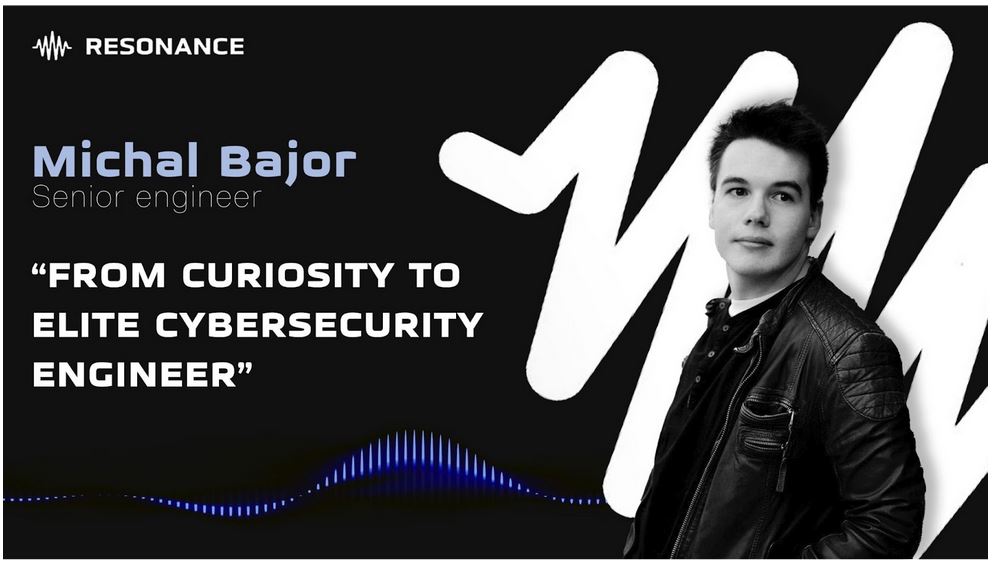
Up-and-coming cybersecurity outfit Resonance has strengthened its backroom team with the hiring of yet another industry expert. Michal Bajor, who previously worked for prominent Web3 security firms, has joined the company as a senior security engineer.
His role will involve probing the cyberdefenses of its customers in an effort to find vulnerabilities in their code and come up with ways to fix them, before the bad guys locate them first.
It’s a key appointment for Resonance, as the company has big ambitions to become a leading player in the world of cybersecurity, with a unique approach that leverages the lessons learned from some of the biggest hacks in both Web2 and Web3.
Resonance has developed what it calls a “full-spectrum cybersecurity platform” that encompasses a range of security tools and techniques, and adds in a dose of automated AI guidance so that even beginners can use it to throw off the most determined hackers.
For new customers, it all begins with an automated security risk analysis that involves Resonance probing their Web3 codebase and legacy, cloud-based infrastructure to try and find any weak points that could potentially be exploited by hackers. It presents the results of this analysis in an easy-to-digest dashboard that provides an overall “security score”, identifying the main priorities, and suggesting the most effective remedies for each one.
The main benefit of this approach is that companies won’t necessarily have to hire their own, dedicated security specialist, as Resonance effectively takes on that role itself. The company puts a lot of focus on so-called “offensive security”, carrying out audits and penetration tests to analyze the strengths and weaknesses of its customers’ code and infrastructure, with the aim being to identify bugs or exploits and fix them before any damage is done.
This is where Bajor comes into his own. He made his name at several blockchain security firms, where he forged a reputation as a skilled operator in all things relating to offensive security, carrying out extensive code audits on behalf of its customers, with a focus on code written in the Rust programming language. Bajor later joined another prominent security firm, where he worked as a freelance blockchain security auditor, carrying out smart contract audits for EVM and Rust-based ecosystems, specializing in the security verification of blockchain-based applications.
In his most recent role prior to joining Resonance, Bajor served as a senior blockchain security engineer at a cyber security firm, where he once again focused on carrying out extensive audits of smart contract code writing in Rust.
In an interview, Bajor explained that he got into cybersecurity precisely because it’s one of the most challenging areas in technology development. “I loved the idea of digging deeper and being forced to actually understand how things work, and not just remember how you can use them,” he said.
Bajor revealed that he first became exposed to Web3 while he was studying at university. Whereas most Web3 advocates initially started out as cryptocurrency enthusiasts, he revealed that he was more interested in the broader potential of blockchain itself, particularly its immutable and distributed nature, and its programmability via smart contracts.
“I just felt there are almost infinite possibilities for how this technology can be used, and what benefits it might bring,” he explained.
Having been drawn into the world of blockchain and Web3, Bajor quickly came to realize that one of its most pressing challenges lies in security, which stems from the fact that it’s still such a nascent and rapidly evolving technology. He explained that Web3 is so new that there are going to be ways in which it’s used that people haven’t even thought about yet. But while the potential for innovation is amazing, this means there’s also a great deal of ambiguity about the technology. As a result, it faces some very unique security threats, and that is the challenge he ultimately decided to take on.
Bahor said he was attracted to Resonance because the company is among the first to realize that Web3 security will require both a standardized approach, and also tailored solutions for each project. “Let’s say we’re working on a DeFi project. Just because we’ve already done things for other DeFi projects, it doesn’t mean we can’t pay less attention towards that thing for this new project we’re working on,” Bajor explained. “Every single DeFi project needs to be considered individually with a customized approach, and that’s what Resonance does.”
Resonance’s focus on continuous evaluation and assessment was another big attraction for Bajor. He explained that in cybersecurity, you can never say that the job is “done”, as it has and always will be a continuous process that needs constant care and attention.
Ultimately, joining Resonance was an easy decision for Bajor to make, not only because its philosophy towards cybersecurity aligns with his own, but because he already knew most of the people on its team, having worked with them in the past. He explained that Resonance operates in a way that’s quality-orientated, benefiting both its customers and also its team members, as this allows them to focus on what they do best.
“Working on the bleeding edge of innovation also helped with my decision,” Bajor continued. “Resonance is innovative and wants to increase security levels in both Web3 and Web2, and especially in emerging technologies. It is a challenging task I know I want to help with.”























